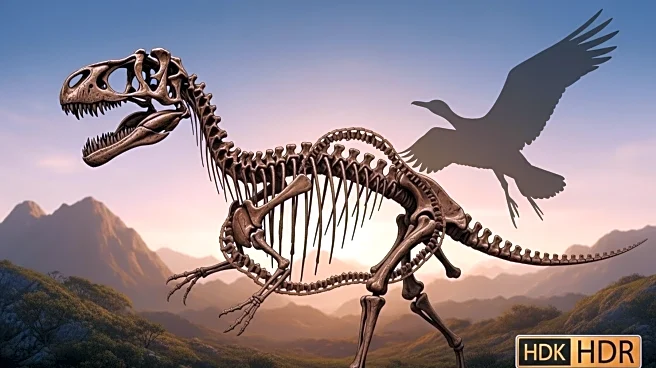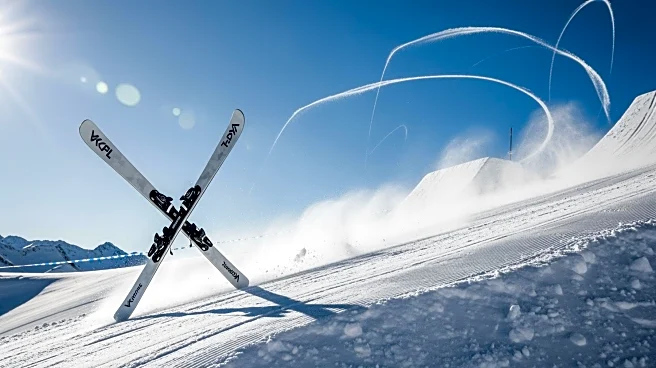What's Happening?
Mark Norell, a prominent paleontologist known for his groundbreaking research on the evolutionary connection between dinosaurs and birds, has died at the age of 68. His death, which occurred in a Manhattan hospital, was attributed to heart failure, as confirmed by his brother, Todd. Norell served as the chairman of the American Museum of Natural History’s division of paleontology and was renowned for his fossil-hunting expeditions across the globe, including locations such as China, Chile, Argentina, Romania, the Sahara, and Mongolia. His work significantly contributed to the understanding of theropod dinosaurs, a group of bipedal carnivores, and their evolutionary link to modern birds. One of his notable achievements was curating the 2016 exhibition 'Dinosaurs Among Us' at the museum, which highlighted these connections.
Why It's Important?
Mark Norell's contributions to paleontology have had a profound impact on the scientific community's understanding of evolutionary biology. His research provided compelling evidence that birds are direct descendants of theropod dinosaurs, reshaping the narrative of dinosaur extinction and survival. This insight not only enriches the scientific discourse on evolution but also influences educational content and public understanding of natural history. Norell's work has inspired a generation of paleontologists and continues to guide ongoing research in the field. His passing marks the loss of a significant figure in paleontology, whose legacy will persist through his contributions to science and education.
What's Next?
The scientific community is likely to continue building on Mark Norell's research, exploring further the evolutionary pathways that link ancient dinosaurs to modern birds. Institutions like the American Museum of Natural History may honor his legacy through future exhibitions and research initiatives that expand on his findings. Additionally, his work will likely inspire new fossil expeditions and studies aimed at uncovering more about the evolutionary history of life on Earth.
Beyond the Headlines
Mark Norell's work also raises important questions about the nature of scientific exploration and collaboration. His ability to lead expeditions in previously inaccessible regions like Mongolia highlights the importance of international cooperation in scientific research. Furthermore, his findings challenge traditional views of extinction and survival, prompting broader discussions about adaptation and resilience in the face of environmental changes.









